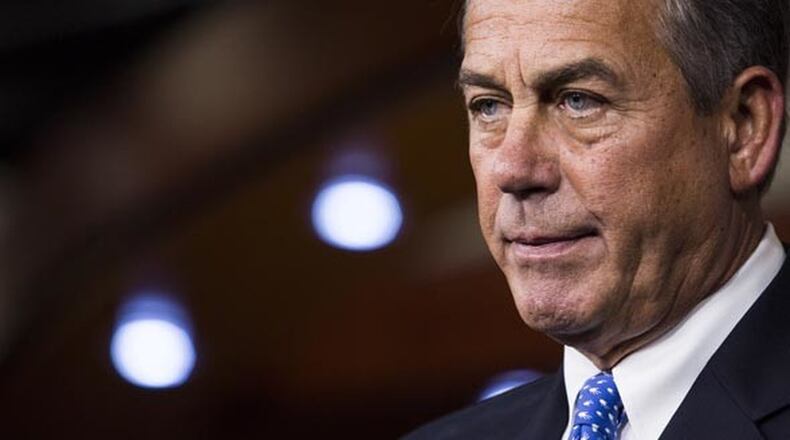Under then-House Speaker John Boehner’s watch, earmarks went from $29 billion in 2006 to $4.2 billion in 2015, according to Citizens Against Government Waste. Those earmarks that have remained, say watchdogs, are “underground” earmarks, in which lawmakers ask the executive branch to pay for projects or move money around behind closed doors.
The trio leading the fight to return earmarks is made up of Reps. John Culberson, R-Texas, Mike Rogers, R-Ala., and Thomas Rooney, R-Fla. In a release on his website, Culberson said the ban had the “best of intentions,” but “has resulted in less transparency and an abdication of our constitutional duty.”
Earmarks allowed members of Congress to direct how federal funds are spent. Culberson said he supports modifying the current ban to allow members to authorize projects in a geographically specific location if they have a clear federal nexus, are allowed by law and do not increase spending beyond budgetary restraints.
The group pushed last month to change the rules of the House to create “numerous exceptions” to the current earmark ban in a private meeting of House Republicans, according to Curtis Kalin of the D.C.-based Citizens Against Government Waste. Speaker Paul Ryan quickly stepped in, tabling the motion until early next year and insisting that a review of that rule be a public debate.
“He said, ‘We just had a ‘drain the swamp’ election,’” Kalin said. “Let’s not just turn around and bring back earmarks two weeks later.”
But some say that the earmark ban went too far and has penalized some regions, cutting off a source of funds that provided much-needed improvements.
Ohio – and this part of Ohio — had long benefited from congressional earmarks.
Powerful congressional appropriators approved money for everything from military projects at Wright-Patterson Air Force Base to more handicapped accessible bathrooms at a park in nearby Springfield. Other regions of the state did well, but the Dayton region, represented in part by then-Rep. David Hobson of Springfield, did exceptionally well.
Hobson, now retired from Congress, said he understands why lawmakers want to bring earmarks back.
“I think what they found out is that they have turned all the power as congressman over to the administration,” he said, saying earmarks enable lawmakers to find good matches between projects and their districts.
Even small earmarks can have a huge benefit, Hobson said.
“A lot of members are new and they don’t know how bad they’ve been hurt by not having these,” he said.
According to Hobson, earmarks allowed lawmakers to get the federal government to do something for their districts. “Now, the government is still big, quality of life is still screwed up and we’re paying more in taxes,” he said.
Michael Gessel, a lobbyist with the Dayton Development Coalition, said it would take a “sea change” in order to see the old earmarking process return. But he agrees this region did well during the earmark years.
“You can’t really compare apples and oranges year to year, because things are always changing, but when earmarks were eliminated – that was one mechanism that we no longer had to direct money to Dayton,” he said.
Gessel said reducing earmarks did not reduce government funding. “It just reduced the ability of Congress to direct where that federal funding went.”
The earmark ban still has plenty of advocates. Kalin of Citizens Against Government Waste is one of them.
“To bring back one of the worst, most corrupt practices in the history of Congress would just be an affront to the will of the voters and the will of the taxpayers,” he said.
Tommy Binion, director of policy outreach for the conservative Heritage Foundation, said the group will fight any attempt to bring back earmarks.
Lawmakers “don’t have fiscal discipline,” he said, and argues that earmarks lead to waste and become a tool to buy votes.
Instead of draining the swamp, he said, “This would be expanding the swamp.”
About the Author
